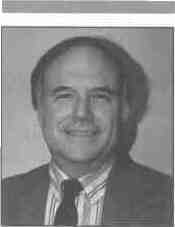Politics
Sports, it has been said, are a metaphor for life. Reflecting on the state of Illinois government and politics in recent days, one reasonably might conclude that the converse is also true: Contemporary public life in Illinois is showing uncanny parallels to some of the disturbing trends infecting big-time professional athletics today. Consider, for example, just a couple: • The relentless extension of the schedule for major professional sports that's pushed championship events into unnatural, very long seasons. • The trash-talking, in-your-face attitude displayed by too many players that's fast obscuring any notion of good sportsmanship. Slam dunks and slap shots were in the air a short while ago, as schoolchildren began their summer vacations. If the weather is particularly uncooperative come fall, there's an outside chance baseball's World Series could wrap up in November—perhaps even on Election Day. In like manner, when November 8 rolls around, it will mark the end of a 15- month campaign for Prairie State voters, since Atty. Gen. Roland W. Bun-is tossed his hat into the gubernatorial ring in early August 1993. The chief reason campaigns in Illinois are marathons, when evidence suggests residents would prefer a mile run, if not a 100-yard dash, is the legislature's persistent unwillingness to move the date of the primary election — now the third Tuesday in March — to later in the year, preferably September. The drawbacks in holding one of the nation's earliest primaries are significant. Candidates and voters alike are worn out by the long-distance grind, while the need to sustain a yearlong campaign operation adds to the spiralling costs of running for office. At the same time, the prolonged season discourages potential challengers who can spare neither the time nor the money for a run of 12 months or more. Perhaps less obvious is the pernicious effect the early primary has on the conduct of government, especially in the General Assembly. Under the current timetable, most lawmakers wanting to run again (all the House and about one-third of the Senate) must file for reelection in December of each odd-numbered year, just 11 months after they took their oaths of office for their current terms. As a practical matter, life for House members becomes a perpetual campaign, without a respite from ballot box anxieties to practice statesmanship. Moreover, the March primary fosters legislative gridlock and procrastination, postponing any substantive work for almost the first three months of the even-year session. This year, of course, the legislative inertia has persisted long past the primary, in a session marked by the same kind of old-fashioned bad manners that's so prevalent in sports today. With verbal intimidation and dirty play valued on a par with athletic ability in some pro quarters, it's no surprise that bench-clearing brawls are more frequent. Fortunately, there have been no aisle- clogging melees in the legislature so far, but on occasion the rhetorical violence — especially in the House — has reached levels unknown in recent memory. Of course, legislative tempers always seem shorter, and nerves more frayed, in an election year, but this spring the ill will index has been off the chart. Proper decorum, parliamentary civility, even common courtesy, have fallen by the wayside in the nasty atmosphere of rancor and bitterness pervading the session. Why should things be so acrimonious now? Several reasons suggest themselves. For the first time since 1982, lawmakers are heading into a general election with legislative control divided between the parties. During the last five election cycles. Democrats held majorities in both the Senate and the House. That permitted former Senate President Philip J. Rock and House Speaker Michael J. Madigan 6/July 1994/Illinois Issues (D-22, Chicago) to present a united front in dealing with Republican governors James R. Thompson and Jim Edgar. The Democratic leaders also were able to control the legislative agenda for the maximum benefit of their members seeking reelection. Such leadership collusion ended, of course, with the ascendancy of Senate President James "Pate" Philip (R- 23, Wood Dale), who doesn't even see eye-to-eye with Edgar on some key issues. What's more, Philip's leadership style is closer to Madigan's iron-fisted reign than to Rock's participatory democracy. While the minority party in either chamber feels oppressed, the hostility is greater in the House, where the stakes are higher. In the Senate, there's little chance that Democrats will overcome the GOP's 32-27 edge; in fact, the most likely scenario would find Republicans picking up a seat. In the House, though. Republicans feel they have a real shot at shaving the Democrats' 67-51 advantage. The optimism is founded in part on the 1991 remap, which produced districts drawn to favor GOP candidates. Democrats overcame the cartographic handicap two years ago by winning in 18 GOP-leaning districts, including four in which the victory margin was fewer than 400 votes. Claiming half of those 18 tenuous seats might be enough to give Republicans the majority, and both sides know it. Thus, much of the partisan energy in the House has been spent on members perceived as vulnerable, the so-called targets, with each camp trying to promote and protect its own and to ambush those on the other side. That's why the House scratched and clawed for weeks over legislation already pronounced dead by Senate leaders. The deadline for Senate action on the bills may have passed, but there's no time limit on partisan roll calls and political press releases. Meanwhile, those who love sports and politics are left to lament the state of affairs, whether between the white lines or under the Statehouse dome. Charles N. Wheeler III is director of the Public Affairs Reporting program at Sangamon State University in Springfield and a former correspondent in the Springfield Bureau of the Chicago Sun-Times. ¯ July 1994/Illinois Issues/7
|
|||||||||||||||

